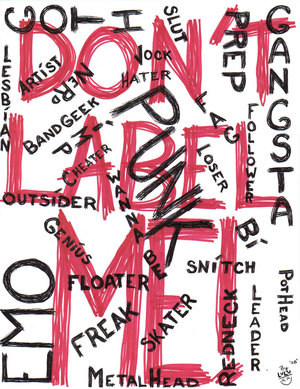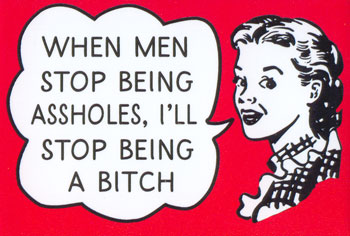Just saying...
It's not what you think you are, but what YOU THINK you are.
Interesting wordplay .
Isn't it strange that our teachers tell us to write clear, simple succinct sentences, yet they gush over these mind-numblingly confuzzling statements?
Just realised that humans are hypocrites. For example, we can't hit the correct notes on a scale, yet we insult Farenheit's singing (they really suck, but anyway) and state that they are the worst singers on earth. Just goes to show that we judge others more harshly than ourselves.
Here's an extract from
le petit prince.
Note: This is in French. Skip right to the translation if you please.
-Ah! Voilà un sujet, s'écria le roi quand il aperçut le petit prince.
Et le petit prince se demanda:
-Comment peut-il me connaître puisqu'il ne m'a encore jamais vu!
Il ne savait pas que, pour les rois, le monde est très simplifié. Tous les hommes sont des sujets.
-Approche-toi que je te voie mieux, lui dit le roi qui était tout fier d'être roi pour quelqu'un.
Le petit prince chercha des yeux oû s'asseoir, mais la planète était toute encombrée par le magnifique manteau d'hermine. Il resta donc debout, et, comme il était fatigué, il bâilla.
-Il est contraire à l'étiquette de bâiller en présence d'un roi, lui dit le monarque. Je te l'interdis.
-Je ne peux pas m'en empêcher, répondit le petit prince tout confus. J'ai fait un long voyage et je n'ai pas dormi…
-Alors, lui dit le roi, je t'ordonne de bâiller. Je n'ai vu personne bâiller depuis des années. les bâillements sont pour moi des curiosités. Allons! bâille encore. C'est un ordre.
-Ca m'intimide… je ne peux plus… fit le petit prince tout rougissant.
-Hum! Hum! répontit le roi. Alors je… je t'ordonne tantôt de bâiller et tantôt de…
Il bredouillait un peu et paraissait vexé.
Car le roi tenait essentiellement à ce que son autorité fût respectée. Il ne tolérait pas le désobéissance. C'était un monarque absolu. Mais comme il était très bon, il donnait des ordres raisonnables.
"Si j'ordonnais, disait-il couramment, si j'ordonnais à un général de se changer en oiseau de mer, et si le général n'obéissait pas, ce ne serait pas la faute du général. Ce serait ma faute."
-Puis-je m'asseoir? s'enquit timidement le petit prince.
-Je t'ordonne de t'asseoir, lui répondit le roi, qui ramena majestueusement un pan de son manteau d'hermine.
Mais le petit prince s'étonnait. la planète était minuscule. Sur quoi le roi pouvait-il bien reigner?
-Sire, lui dit-il… je vous demande pardon de vous interroger…
-Je t'ordonne de m'interroger, se hâta de dire le roi.
-Sire… sur quoi régnez-vous?
-Sur tout, répondit le roi, avec une grande simplicité.
-Sur tout?
Le roi d'un geste discret désigna sa planète, les autres planètes et les étoiles.
-Sur tout ça? dit le petit prince.
-Sur tout ça… répondit le roi.
Car non seulement c'était un monarque absolu mais c'était un monarque universel.
-Et les étoiles vous obéissent?
-Bien sûr, lui dit le roi. Elles obéissent aussitôt. Je ne tolère pas l'indiscipline.
Un tel pouvoir émerveilla le petit prince. S'il l'avait détendu lui-même, il aurait pu assister, non pas à quarante-quatre, mais à soixante-douze, ou même à cent, ou même à deux cents couchers de soleil dans la même journée, sans avoir jamais à tirer sa chaise! Et comme il se sentait un peu triste à cause du souvenir de sa petite planète abandonnée, il s'enhardit à solliciter une grâce du roi:
-Je voudrais voire un coucher de soleil… Faites-moi plaisir… Ordonnez au soleil de se coucher…
-Si j'ordonnais à un général de voler une fleur à l'autre à la façon d'un papillon, ou d'écrire une tragédie, ou de se changer en oiseau de mer, et si le général n'exécutait pas l'ordre reçu, qui, de lui ou de moi, serait dans son tort?
-Ce serait vous, dit fermement le petit prince.
-Exact. Il faut exiger de chaqu'un ce que chaqu'un peut donner, reprit le roi. L'autorité repose d'abord sur la raison. Si tu ordonnes à ton peuple d'aller se jeter à la mer, il fera la révollution. J'ai le droit d'exiger l'obéissance parce que mes ordres sont raisonnables.
>
(English version)
"Ah! Here is a subject," exclaimed the king, when he saw the little prince coming.
And the little prince asked himself:
"How could he recognize me when he had never seen me before?"
He did not know how the world is simplified for kings. To them, all men are subjects.
"Approach, so that I may see you better," said the king, who felt consumingly proud of being at last a king over somebody.
The little prince looked everywhere to find a place to sit down; but the entire planet was crammed and obstructed by the king's magnificent ermine robe. So he remained standing upright, and, since he was tired, he yawned.
"It is contrary to etiquette to yawn in the presence of a king," the monarch said to him. "I forbid you to do so."
"I can't help it. I can't stop myself," replied the little prince, thoroughly embarrassed. "I have come on a long journey, and I have had no sleep . . ."
"Ah, then," the king said. "I order you to yawn. It is years since I have seen anyone yawning. Yawns, to me, are objects of curiosity. Come, now! Yawn again! It is an order."
"That frightens me . . . I cannot, any more . . ." murmured the little prince, now completely abashed.
"Hum! Hum!" replied the king. "Then I--I order you sometimes to yawn and sometimes to--"
He sputtered a little, and seemed vexed.
For what the king fundamentally insisted upon was that his authority should be respected. He tolerated no disobedience. He was an absolute monarch. But, because he was a very good man, he made his orders reasonable.
"If I ordered a general," he would say, by way of example, "if I ordered a general to change himself into a sea bird, and if the general did not obey me, that would not be the fault of the general. It would be my fault."
"May I sit down?" came now a timid inquiry from the little prince.
"I order you to do so," the king answered him, and majestically gathered in a fold of his ermine mantle.
But the little prince was wondering . . . The planet was tiny. Over what could this king really rule?
"Sire," he said to him, "I beg that you will excuse my asking you a question--"
"I order you to ask me a question," the king hastened to assure him.
"Sire--over what do you rule?"
"Over everything," said the king, with magnificent simplicity.
"Over everything?"
The king made a gesture, which took in his planet, the other planets, and all the stars.
"Over all that?" asked the little prince.
"Over all that," the king answered.
For his rule was not only absolute: it was also universal.
"And the stars obey you?"
"Certainly they do," the king said. "They obey instantly. I do not permit insubordination."
Such power was a thing for the little prince to marvel at. If he had been master of such complete authority, he would have been able to watch the sunset, not forty-four times in one day, but seventy-two, or even a hundred, or even two hundred times, without ever having to move his chair. And because he felt a bit sad as he remembered his little planet which he had forsaken, he plucked up his courage to ask the king a favor:
"I should like to see a sunset . . . Do me that kindness . . . Order the sun to set . . ."
"If I ordered a general to fly from one flower to another like a butterfly, or to write a tragic drama, or to change himself into a sea bird, and if the general did not carry out the order that he had received, which one of us would be in the wrong?" the king demanded. "The general, or myself?"
"You," said the little prince firmly.
"Exactly. One must require from each one the duty which each one can perform," the king went on. "Accepted authority rests first of all on reason. If you ordered your people to go and throw themselves into the sea, they would rise up in revolution. I have the right to require obedience because my orders are reasonable."
Doesn't this remind you of certain teachers?
Elaboration in later post.






